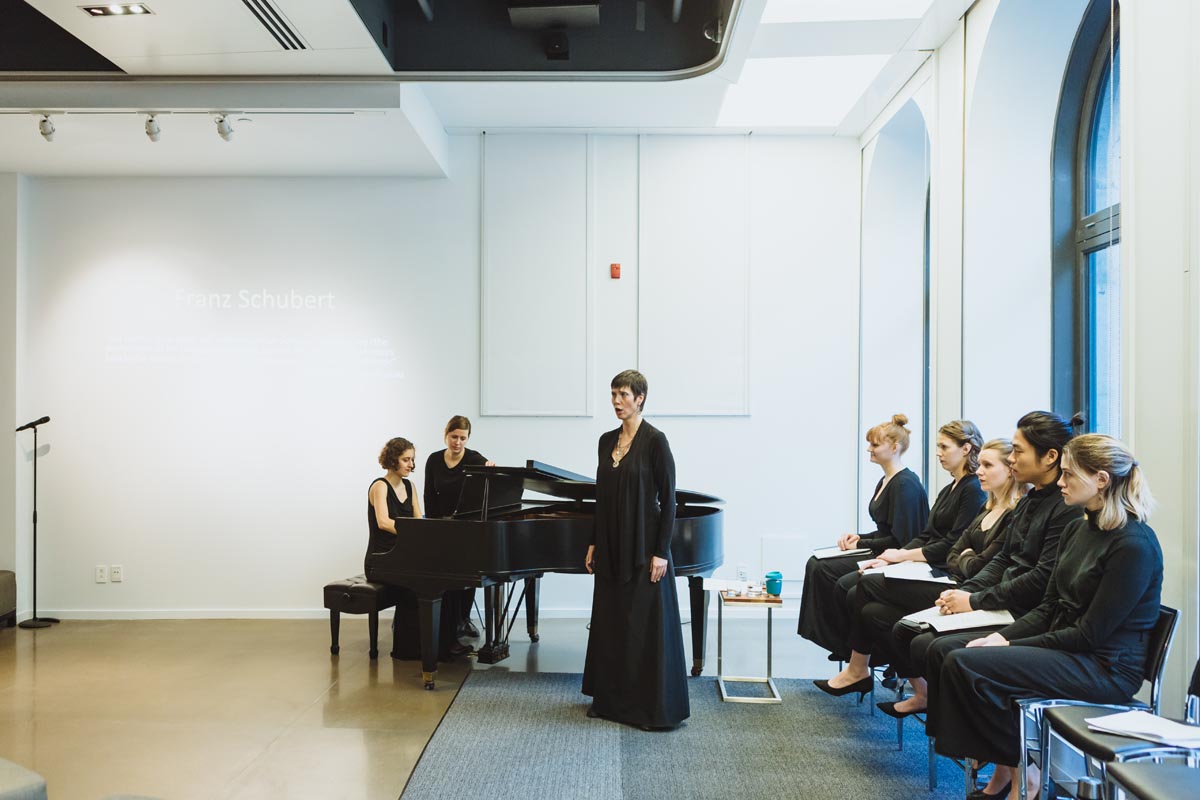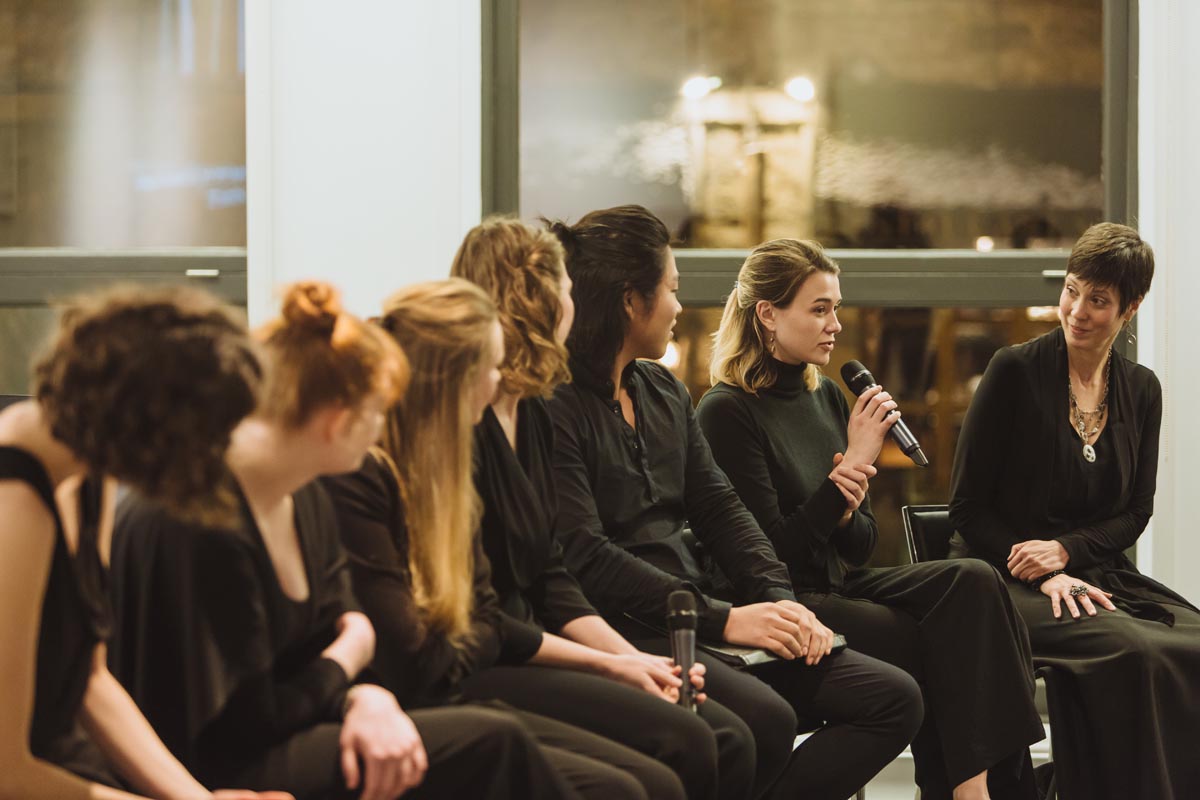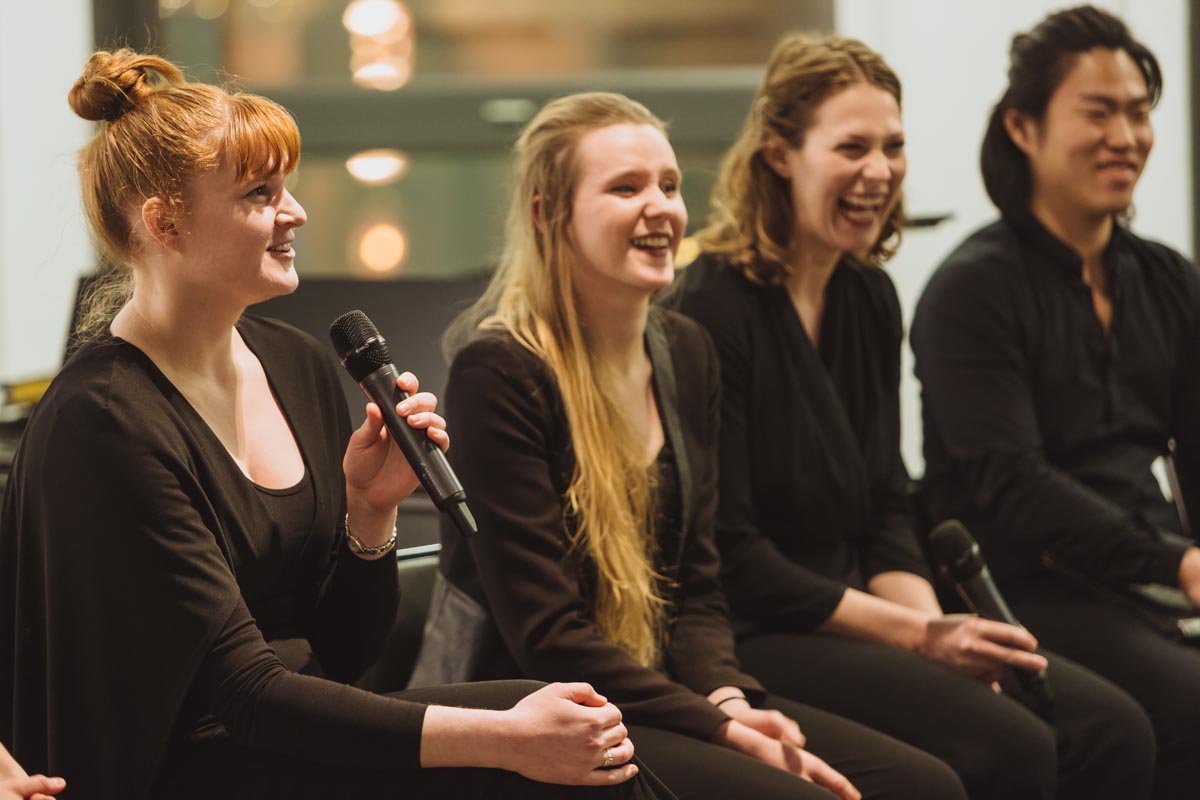“Do you remember someone close singing to you?”
Irene Feher, mezzo-soprano
When was the last time that someone you are close to sang to you? Perhaps this question evokes memories of childhood, of lullabies and rocking chairs; perhaps a lover’s serenade, or a birthday celebration. Being sung to is akin to an act of kindness, generosity and care. It is a gift.
In Lee Mingwei’s Sonic Blossom (2013–ongoing) at DHC/ART Foundation for Contemporary Art, it is not someone close who is offering a song. It is a stranger. But the gift remains meaningful and true. As visitors make their way through the exhibition L’OFFRE at 451 St. Jean Street on weekends, an opera singer wearing what Mingwei refers to as a “transformational cloak” meanders through the exhibition. They approach a visitor of their choice and say, “May I offer you the gift of song?” Should the visitor say yes, they accompany the singer to the fourth floor and are seated on a wooden chair. For the next three minutes, the selected visitor is the sole recipient of a private performance. Others may be in the room, listening and observing, but the song is really being sung for them alone.
Mingwei chose Schubert’s Lieder for this project due to a personal relationship with the music. During Mingwei’s youth, his mother used to play the Lieder. Mingwei recounted an anecdote of running around as a child and telling his mother to turn up the volume, as he couldn’t hear the music. She responded by telling him that he had to slow down and listen. The music required a certain attention. Years later, Mingwei and his mother listened to the same Lieder together as she was recovering from surgery. The music took on a new meaning. It was comforting to them both, but also a reminder of aging and of life’s fragility.


